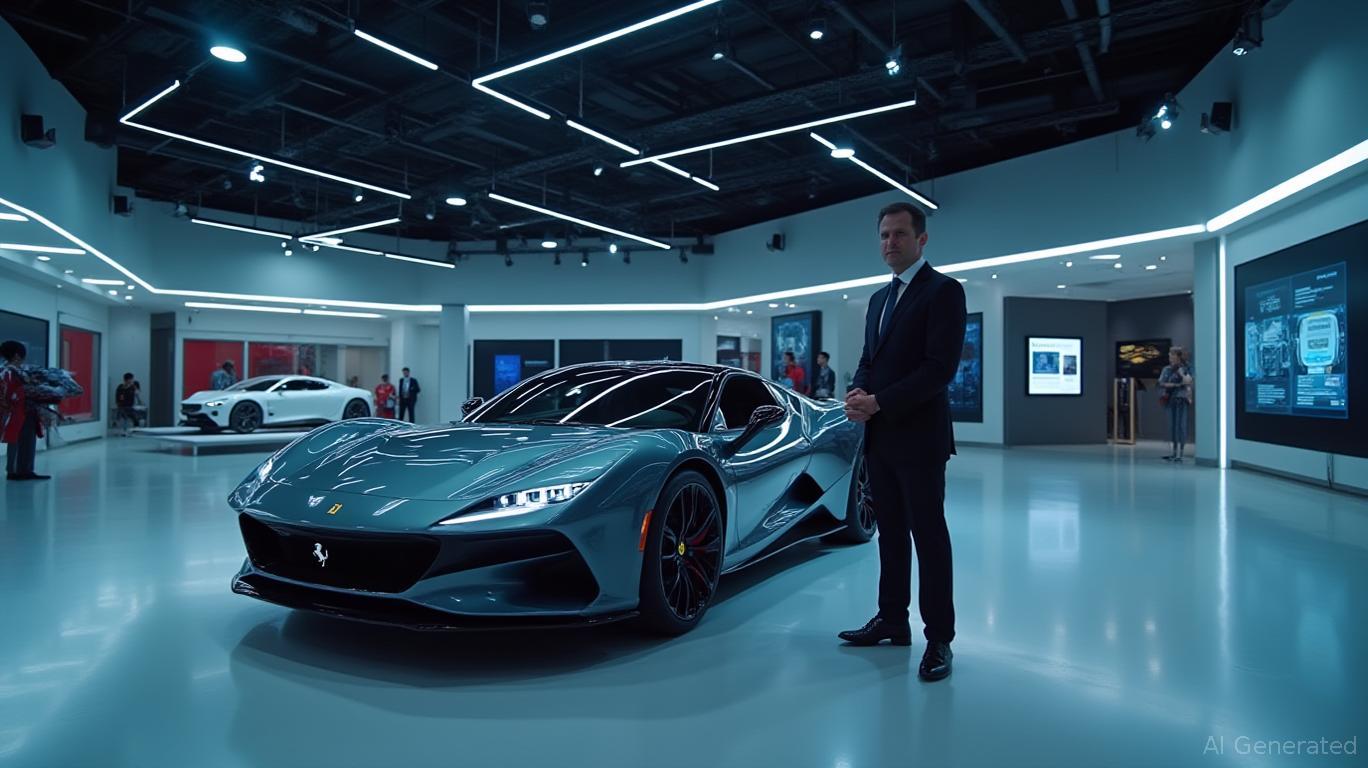Ferrari NV (NYSE: RACE) is ramping up its efforts in electric vehicles and digital transformation, announcing a collaboration with SK On for advanced EV batteries and introducing a blockchain-based auction for its iconic 499P
race
car. The renowned Italian luxury carmaker, celebrated for its exclusivity and cutting-edge technology, is carving out a space where luxury, sustainability, and blockchain converge.
The automaker’s inaugural high-performance electric vehicle, slated for release in 2026, will utilize SK On’s high-nickel battery technology, offering a range of 530 km per charge. The battery is engineered to be part of the vehicle’s chassis, boosting both structural integrity and impact resistance—a detail revealed during
closed-door talks
between
Ferrari
CEO Benedetto Vigna and SK On CEO Lee Seok-hee. This alliance fits Ferrari’s plan to provide state-of-the-art batteries for luxury EVs, aiming to counter the industry’s “catharsis” around electrification and to shift away from price competition with Chinese manufacturers, according to reports.
At the same time, Ferrari is utilizing blockchain technology to grow its Hyperclub, an exclusive circle of 100 members, through a
tokenized auction
for the Le Mans-winning 499P. This project, created in partnership with fintech company Conio, will launch in 2027 alongside the World Endurance Championship. Participants will use smart contracts to place bids on the 499P, with cryptocurrency payments accepted in
Bitcoin
,
Ethereum
, and
USDC
, as Ferrari seeks to tap into the expanding wealth of
crypto millionaires
whose numbers jumped by 40% in 2025.
Ferrari’s brand presence also extends into the world of collectibles. Mattel’s
Hot Wheels collection
has broadened its Formula 1 series to include all 10 teams, featuring Ferrari’s 2025 design. The 1:64 scale cars, available in both premium and standard editions, demonstrate Ferrari’s appeal beyond just car aficionados. Meanwhile, the company’s share repurchase initiative, part of a €2 billion program, resulted in €17.5 million spent in October 2025, with 51,100 shares bought back, as detailed in the
buyback report
.
These developments come as the electric vehicle sector faces challenges. Porsche AG experienced a
99% drop in operating profit
in 2025, attributed to heavy investment in EVs, U.S. tariffs, and sluggish sales in China. Porsche’s difficulties underscore the hazards of a rapid shift to electric vehicles, in contrast to Ferrari’s balanced approach that combines EVs with traditional engines and incorporates digital assets.
Ferrari’s approach highlights its commitment to both heritage and innovation. By appealing to both tech-savvy, crypto-oriented buyers and classic collectors, the brand aims to uphold its premium status and exclusivity amid changing market dynamics. As CEO Vigna remarked, "The future of luxury is not solely about performance—it’s about transforming ownership and experience through technological advancement."
